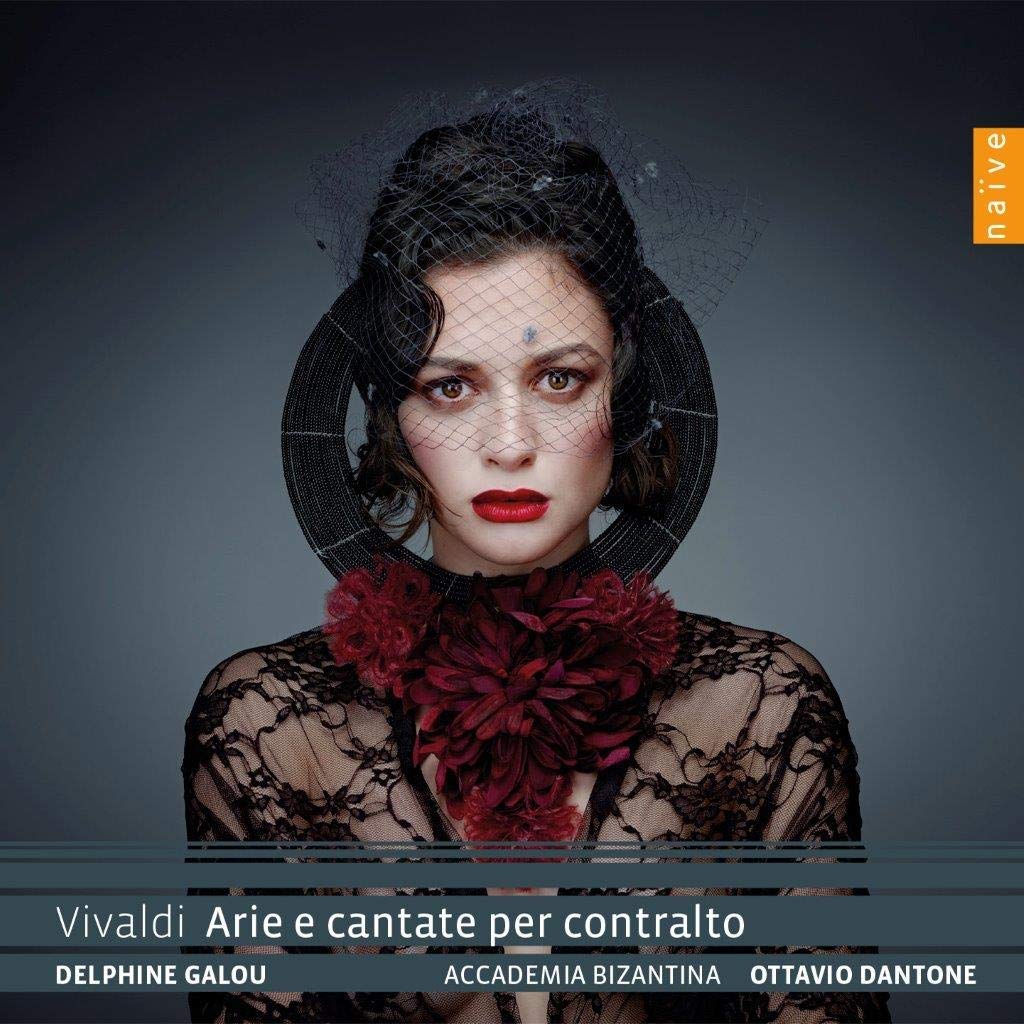Delphine Galou contralto
Accademia Bizantina, directed by Ottavio Dantone
57:47
Naïve OP30584
Three secular cantatas and eight opera arias, mostly either replacements or from incomplete operas, feature on this splendidly performed but musically uneven recital that is one of two new additions to Naïve’s massive Vivaldi Edition. Much the most satisfying is Cessate, omai cessate (RV 684), a late cantata for alto and strings dating from 1734-5. Superbly dramatic, it opens with an extended highly wrought accompanied recitative structured in three parts, the central one forming a contrasting arioso. The opening aria also brings contrast between barely suppressed unhappiness and the outburst of angst at ‘Ah, sempre più spietata’ (Ah, ever more merciless). The following recitative, a dark night of the soul, is given articulation in a final ‘ombra’-type aria of driving, febrile intensity. It is music that begs for performers able to do justice to its histrionic demands. Here it finds them. Since becoming husband and wife Delphine Galou and Ottavio Dantone have benefited mutually and immeasurably, the singer from her husband’s insistence on the importance of textural communication, while the once rather tense Dantone has noticeably relaxed. The results they achieve in Cessate are electrifyingly symbiotic, every word, every bar speaking of a unity of purpose that projects a profound musical and emotional experience. Listen, for example, in the first aria, to the way already mentioned contrast is handled, Galou’s ‘Ah’, expressive of volumes of pain, the fierce string chords a metaphorical blow to the solar plexus. In the second aria Galou’s inflexion on the words ‘Dorilla, l’ingrata, morire potrò’ (my italics) sear themselves into the mind, as does the wonderfully rounded chest note on the words ‘vendetta faro’ at the conclusion of the B section. This is the pastoral chamber cantata at its most potent and highly developed. A word of praise, too, for the stylish da capo decoration which always remains embellishment rather than the re-writing of the vocal line that too often passes as ornamentation
I’ve concentrated on Cessate to an unusual degree simply because nothing else on the CD comes close to matching it. That is no fault of the performers, who are indeed to be congratulated on making as much as possible of the two occasional cantatas (RV 685 & 686) composed during the period spent in Mantua in the service of the imperial governor, Prince Philip of Hesse-Darmstadt (1718-20). Both are crumbs from Vivaldi’s table, notable for little more than the presence of braying horns in RV 686, symbolic of aristocratic hunting – and obsequious ceremonial.
The notes are by no means of the scholarly standard expected from this series, especially as regards the opera arias. We should have been told that La Candace, composed for Mantua in 1720, is a lost work of which only 11 arias survive, three of which are given here. The most winning is ‘Caro pupille’, charming as to both music and text, and here sung by Galou with affectionate fervour. It is also inaccurate to term Damira’s aria from La verità in cimento (Venice, 1720) ‘positive and reassuring’, since it is neither, being a comic aria with asides of insincere mockery. I assume it was an inserted aria, since although the note-writer informs us it comes from act 2, scene 3, it was not included in the Vivaldi Edition complete recording of La verità. And if you wonder about the unfamiliar Tieteberga (Venice, 1717), it too is now lost, the sole remaining fragment being the indifferent replacement aria recorded here.
In the context of my near-unbounded enthusiasm, a couple of minor caveats must be recorded. Although far less aggravating than at one time, Dantone is not beyond irritating mannerisms, the worst of them the mannered slowing up at cadences. His penchant for fussy continuo and intrusive theorbo twiddles remains annoying. Galou’s formidable technical arsenal would be near complete, were she to develop a proper trill. However, make no mistake – these splendidly performed and vividly communicative performances are streets ahead of what we all too often encounter in this kind of repertoire
Brian Robins
